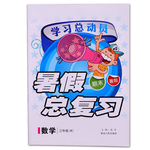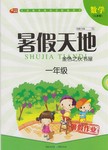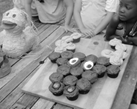题目内容
| Cities | Weather | Temperature | Favorite sports |
| Harbin | snowing | --4℃--5℃ | Skating |
| Qindao | Sunny | 10℃--18℃ | Beach volleyball |
| Hangzhou | Windy | 13℃--19℃ | Basketball |
| Chengdu | Cloudy | 7℃--9℃ | Soccer |
| Haikou | Raining | 25℃--30℃ | Swimming |
- 1.
Which city is very cold?
- A.Harbin
- B.Qindao
- C.Haikou
- D.Hangzhou
- A.
- 2.
If you like swimming very much, you can go to______?
- A.Haikou
- B.Chengdu
- C.Qindao
- D.Harbin
- A.
- 3.
In you need to take a raincoat when you go out.
- A.Haikou
- B.angzhou
- C.hengdu
- D.Qindao
- A.
- 4.
People in Qindao like to______.
- A.skate
- B.play soccer
- C.play volleyball
- D.swim
- A.
- 5.
Where can you see the chart ?
- A.In a story book
- B.On a newspaper
- C.On the telephone
- D.In a map of China
- A.
AAACB
1.细节理解题,由--4℃--5℃可知,故选A
2.细节理解题,由swimming可知,故选A
3.细节理解题,由Raining可知,故选A
4.细节理解题,由Beach volleyball可知,故选C
5.细节理解题,由表格可知这是一份天气预报,故排除ACD,只能选B
1.细节理解题,由--4℃--5℃可知,故选A
2.细节理解题,由swimming可知,故选A
3.细节理解题,由Raining可知,故选A
4.细节理解题,由Beach volleyball可知,故选C
5.细节理解题,由表格可知这是一份天气预报,故排除ACD,只能选B

练习册系列答案
 学期复习一本通学习总动员期末加暑假延边人民出版社系列答案
学期复习一本通学习总动员期末加暑假延边人民出版社系列答案 芒果教辅暑假天地重庆出版社系列答案
芒果教辅暑假天地重庆出版社系列答案
相关题目
Birthdays are celebrated(庆祝)all over the world. Some ways to celebrate birthdays are rather similar from county to country:candles,cakes,and birthday wishes. But there are also different ways to celebrate birthdays. Here are a few:
Denmark A flag is flown outside a window to show that someone who lives in the house is having a birthday. Presents are placed around the child’s bed while he is sleeping so he will see them at once when he wakes up. A flag is flown outside a window to show that someone who lives in the house is having a birthday. Presents are placed around the child’s bed while he is sleeping so he will see them at once when he wakes up. |  India IndiaUsually Indian children wear white to school. However, on their birthdays, children wear colored clothes to school and give out chocolate to everyone in the class. Their best friends help them to do this. |
Japan The birthday child wears new clothes to mark the special time. Certain birthdays are more important than others. These are the third and seventh for girls and fifth for boys. The birthday child wears new clothes to mark the special time. Certain birthdays are more important than others. These are the third and seventh for girls and fifth for boys. | Holland The birthday child receives an especially large present. The family also puts flowers on the birthday child’s chair to make it beautiful. The birthday child receives an especially large present. The family also puts flowers on the birthday child’s chair to make it beautiful. |
- 1.
When someone is having a birthday in Denmark,you can see _____ outside the window
- A.flowers
- B.presents
- C.a flag
- D.a chair
- A.
- 2.
In _________ flowers are put on the chair of the birthday child
- A.Japan
- B.Denmark
- C.India
- D.Holland
- A.
- 3.
In India, birthday children wear _______ clothes to school
- A.colored
- B.long
- C.big
- D.tight
- A.